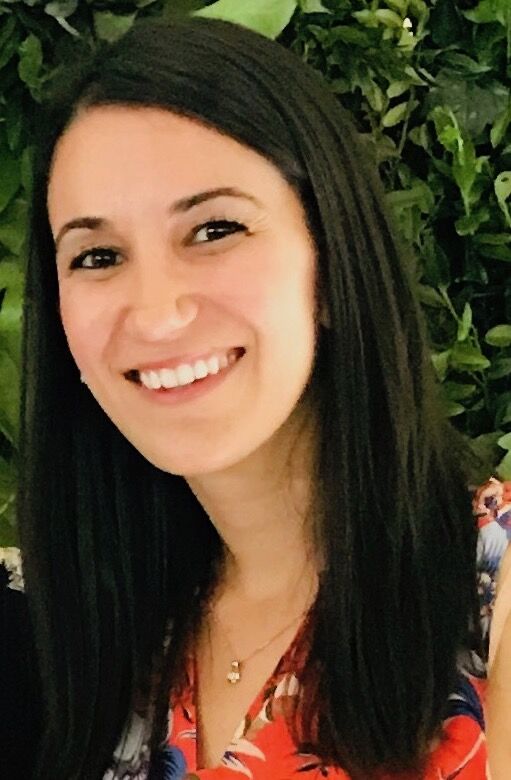I am standing and waiting for the elevator back up to the third floor, where I work as a medical oncology nurse. I am holding my recently purchased lunch in hand, eagerly awaiting a short break where I can recharge before going back to caring for my patients. As I watch the numbers above the elevator door light up, a toddler in his mother’s arms points at me and asks, “Mommy, is she sick?”

There are many gut-wrenching moments that take place under the hospital’s roof. Working in oncology, it seems that these moments are the rule, not the exception. Young and old alike are admitted to the hospital for chemotherapy, treatment-related complications, or exacerbation of disease. While in our care, they relate to us the circumstances leading to their cancer diagnoses. They often tell stories of normal, happy existences that were disrupted on random weekdays by life-changing phone calls from their health care providers. Within the walls of the hospital, goals of care discussions, code status changes, and transitions to hospice are regular occurrences. Still, the high-pitched, sad, innocent inquiry from this child hit a nerve in a way that even these moments had not. Here was a child trying to make sense of the meaning of “sick” – a word, a state of being that, even as adults, we struggle with.
“No, honey,” The mother replies. “That is one of Daddy’s nurses.”
I stare back, surprised. She looks familiar, but I can’t place her. The elevator dings with its arrival and we shuffle quietly inside. I ask her who her husband is and she replies with a name that immediately conjures up images and scenes from just a few months ago.
“How are you doing?” I ask. Her eyes well up. I tell her I will come visit her and her family on the seventh floor later that day, where she tells me they are staying.
I arrive on the seventh floor a few hours later and see a sunset photograph on the patient’s door, a sign that is reserved only for those at the end of life receiving comfort measures to ease their transition from this world.
Inside the room, I reintroduce myself to the patient and take a seat in one of the empty chairs in the room. His family members enter and leave the room, and I greet them and listen to their stories if they offer them. Eventually I get up to go and say goodbye. I cringe at my inadequacy, my inability to say the right thing, all the while knowing that there is no “right thing” to say.
Oftentimes, we get busy at the hospital. A big portion of my work day is spent going back and forth between rooms, hanging antibiotics, pushing intravenous pain medications, and performing wound care. I attend team rounds and contact providers with any concerning vital signs or test results. It’s easy to relate to a nursing shift as a checklist to be completed. But while I scurry from room to room, patients and families are watching me. And as the interaction with my patient’s wife and son helped me realize, I am a part of their story. I can choose to be intentional about my role in their story or I can operate on my default setting: the checklist.
As I take the stairs back down to the third floor, I silently vow to be intentional in my interactions with my patients and their families. To rise above the checklist. Through this intentionality, perhaps I can convey to them that I sympathize with their pain. That I share their grief at life’s regrettable unpredictability. That they are not alone during the most harrowing moments of their lives. I want my patients to know that even though I cannot fully understand exactly what they are going through, I am in this together with them. Conveying this might only mean a half a second longer of eye contact before I hurry off to complete the next item on my to-do list. But perhaps that half-second is all it would have taken to remember my patient’s wife and his brown-eyed, blonde-haired son pointing and staring at me on the ground floor of the hospital, on another random weekday with life-changing implications.
Yael Malul BSN, RN, OCN is a clinical research nurse working at the Center for Human Phenomic Science at the Hospital of the University of Pennsylvania. She began her nursing career working as an inpatient oncology nurse, and she continues to be passionate about serving the oncology population in her current position, where she cares for patients enrolled in clinical trials. She hopes to play a small part in advancing the science that will lead to better treatments for those with cancer, as well as for those with other diseases. Her spare time is spent making mental lists of the best places to eat Middle Eastern food in Philadelphia and visiting the dog park.
Yael- you write beautifully. I got misty eyed and that’s not an easy thing to do. You created an atmosphere with your words that I could, unfortunately, visualize. Thank you for sharing your story.
Thank you Yael for sharing this here, and you really are too good with words.